What these major countries are really planning for fossil fuels by 2030
The nations doubling down on coal, oil and natural gas, revealed
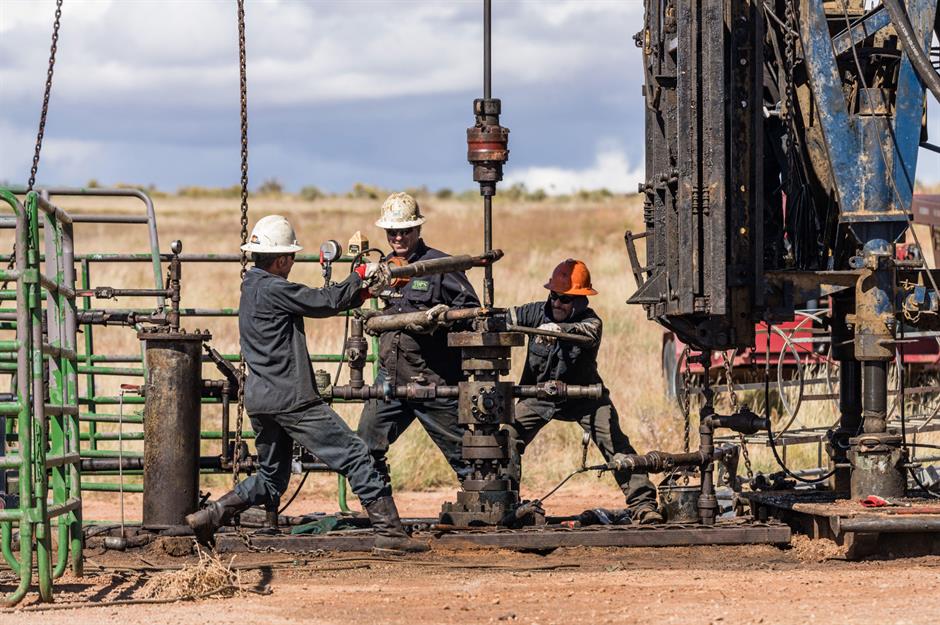
COP28 took place at the end of last year and saw almost 200 countries strike a deal to transition away from fossil fuels. At the time, summit president Sultan al-Jaber hailed the pledge as "historic", although critics say the agreement is weak and full of loopholes.
Actions speak louder than words, of course, and governments have a tendency to break their promises. With this in mind, the annual Production Gap report looks at the discrepancy between countries' projected fossil fuel production and the goal of limiting global warming to 1.5°C (2.7°F) or 2°C (3.6°F). The latest report was released just before COP28 – and makes for shocking reading...
Read on to find out whether the 20 countries featured in the Production Gap report are really working hard to phase out fossil fuels – or doing quite the opposite.
A damning report
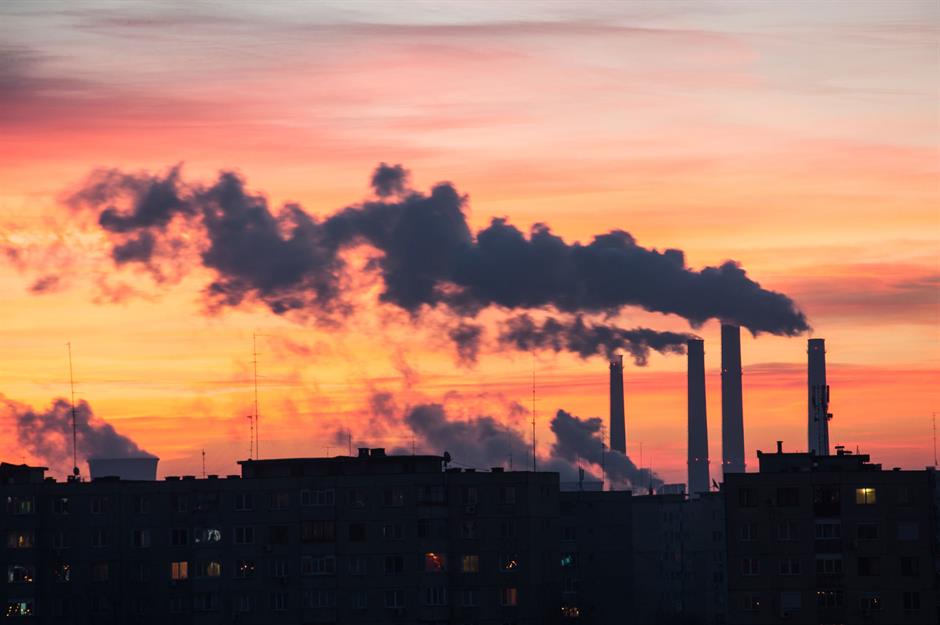
Billed as "a startling indictment of runaway climate carelessness", the 2023 Production Gap report is an eye-opening read.
Authored by the United Nations Environment Programme (UNEP) in collaboration with several leading research organisations, it scrutinises countries' fossil fuel production forecasts, drawing on a raft of reputable sources that include peer-reviewed studies and trustworthy news sources.
The latest edition of the report warns that global fossil fuel production in 2030 will more than twice exceed the amount required to limit global warming to 1.5°C (2.7°F). It shines a spotlight on 20 key fossil fuel-producing countries, 17 of which have pledged to achieve net-zero emissions. Let's discover what these nations have got planned...
Norway
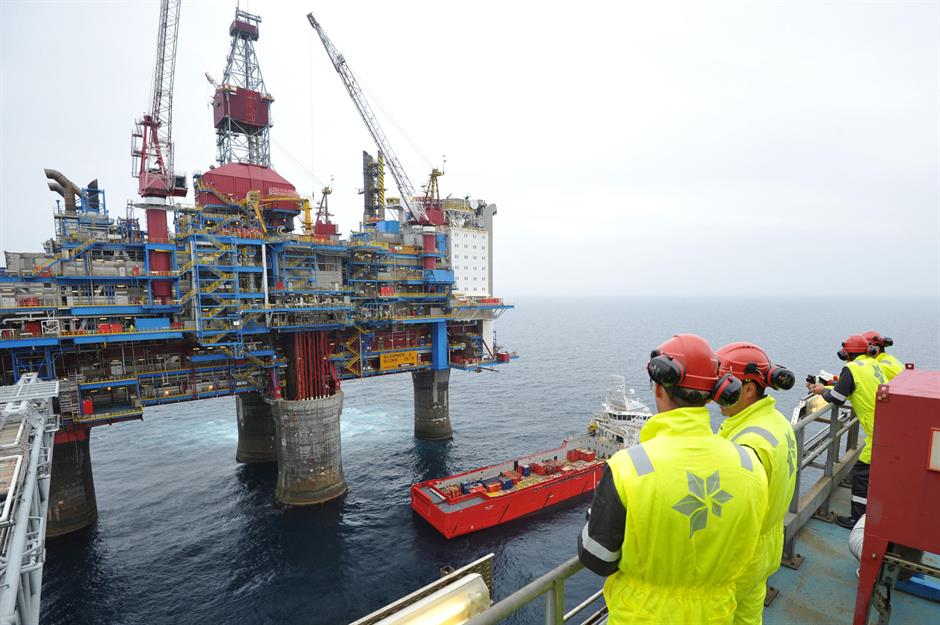
Norway hasn't set a deadline for reaching net zero. Instead, the country's government has signed into law its commitment to a "low-emission society", with targets to reduce greenhouse gas (GHG) emissions by at least 55% by 2030 and up to 95% by 2050.
But the war in Ukraine has boosted western Europe's leading oil and natural gas producer, and the country is now the continent's number one supplier of the latter. North Sea Exploration licences are still being awarded, and the companies involved continue to benefit from incentives and tax breaks.
Sponsored Content
Norway
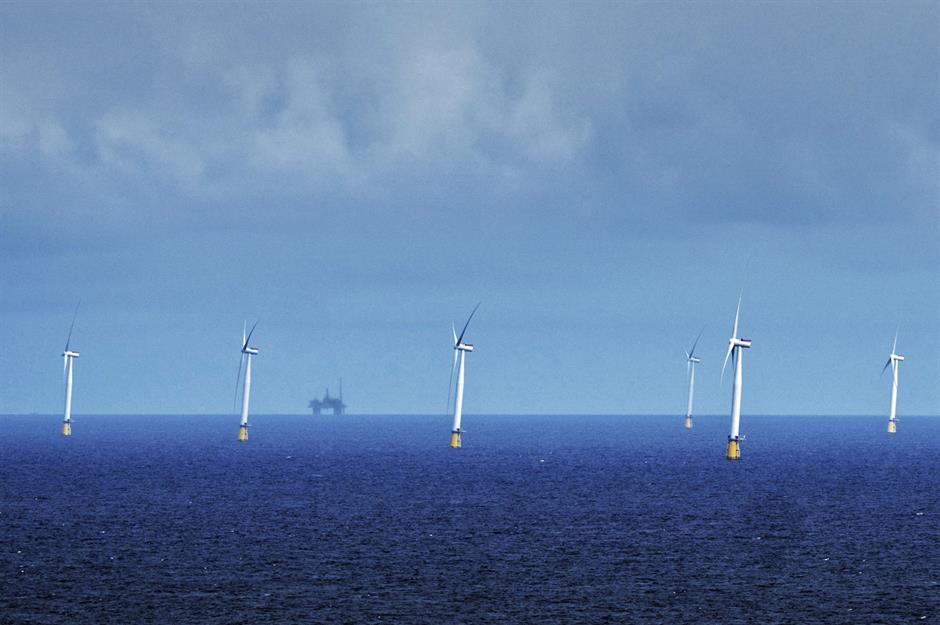
The Norwegian government hasn't devised a strategy for phasing out oil and natural gas production. However, it's working to repurpose its offshore facilities, transforming them into hubs that can produce wind power, blue hydrogen, and other green energies.
In any case, depleting reserves will likely result in declining oil and natural gas production. Volumes are projected to fall back precipitously after 2030. Norway's actions to lower emissions consistent with the 1.5°C (2.7°F) Paris Agreement target have been rated "Almost Sufficient" by the Climate Action Tracker.
This is the second-highest rating after "1.5°C Paris Agreement Compatible", which, according to the tracker, no country has yet achieved.
Nigeria
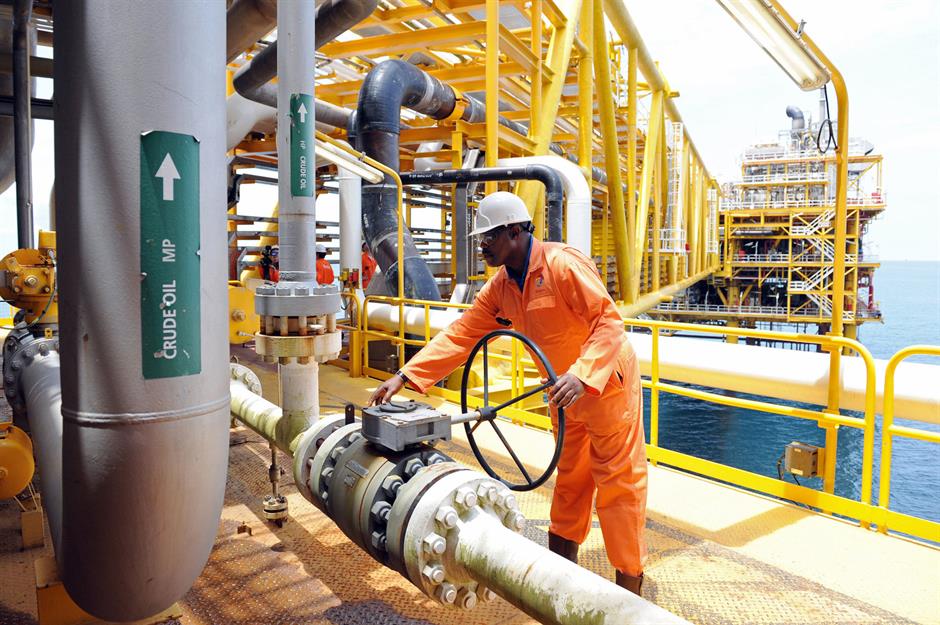
Unlike Norway, Nigeria has passed net zero legislation. The 2021 Climate Change Act commits to achieving net zero between 2050 and 2070. At COP26, which took place shortly after the law was enacted, Nigeria's then-president Mohammed Buhari narrowed the deadline to 2060.
Nigeria is Africa's largest oil producer and the 15th biggest globally, as well as an increasingly important natural gas supplier.
Nigeria
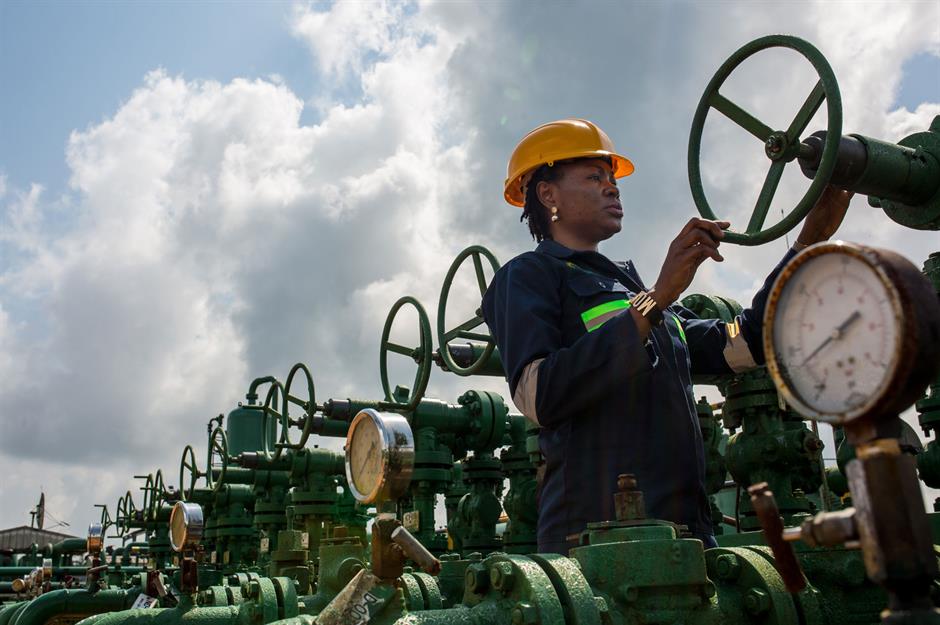
Though oil production is expected to rise moderately, the Nigerian government has hailed 2020 to 2030 as the "decade of gas" and its production is soaring. While still a fossil fuel, natural gas is relatively cleaner than coal and oil, and serves as Nigeria's transition fuel.
However, government plans to revive coal exploration are going against the grain. Despite this, the Climate Action Tracker still suggests that the Nigerian government is nearly doing its fair share to keep global temperatures under 1.5°C (2.7°F), landing it an "Almost Sufficient" rating.
Sponsored Content
Germany
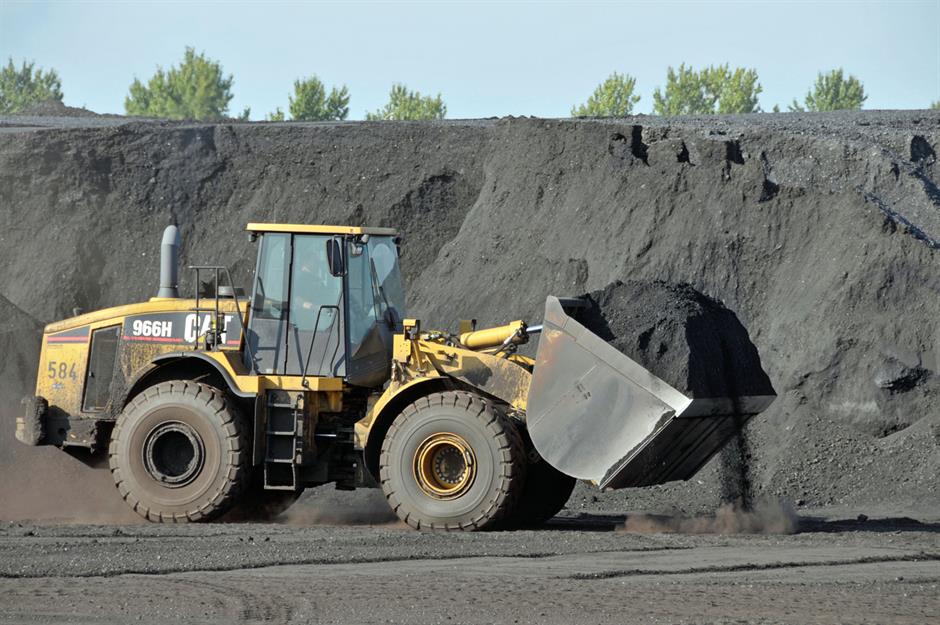
Germany has the most ambitious net zero target among the 20 countries that feature in the report. A deadline of 2045 is enshrined in law, while the nation's Climate Act stipulates a reduction in GHG emissions of at least 65% (compared to 1990 levels) by 2030.
Germany extracts relatively modest quantities of oil and natural gas. But it's one of the world's biggest producers of coal, with only China mining more lignite, which is the dirtiest form of the fuel.
Germany
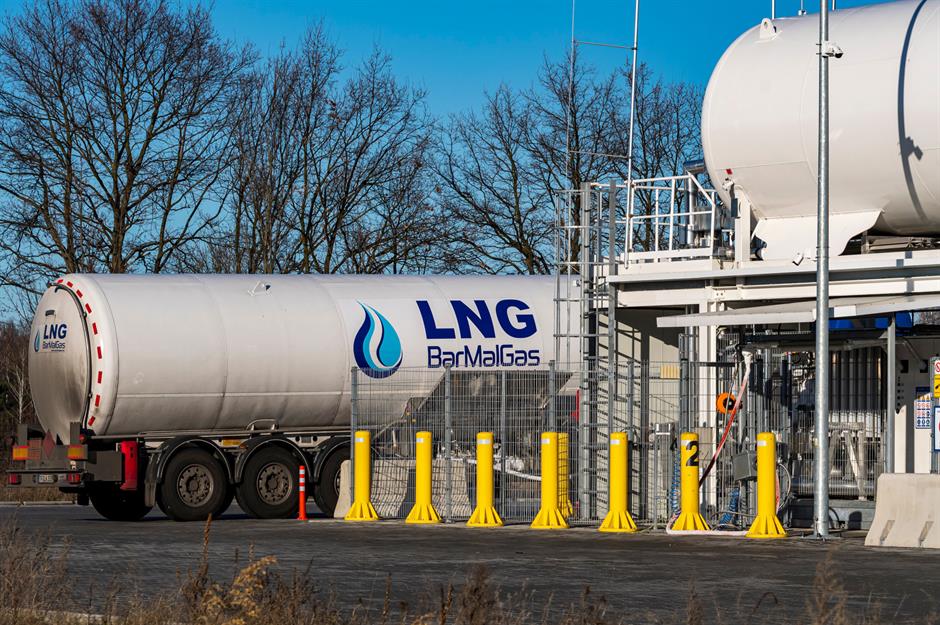
German fossil fuel producers continue to benefit from subsidies, while the energy crisis brought about by Russia's invasion of Ukraine has resulted in increased government investment in natural gas projects.
Conversely, the war has also accelerated Germany's energy transition. The phaseout of coal-fired power outlined in legislation passed in 2020 has carried on unabated and may even be completed sooner than the deadline of 2038. But despite these modest achievements, the Climate Action Tracker has rated Germany's efforts “Insufficient”.
UK
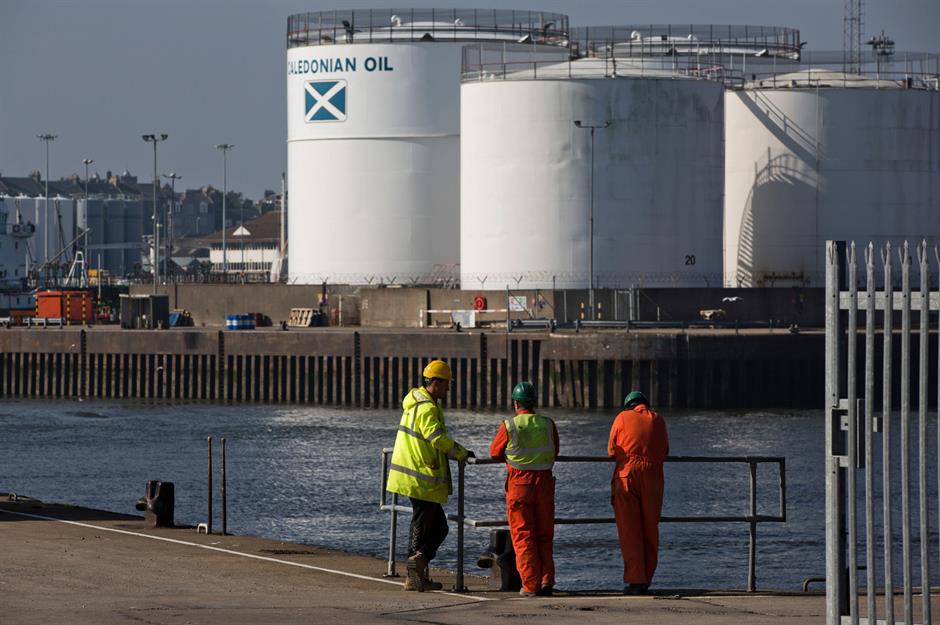
In June 2019, the UK became the first major economy to enact legislation committing to achieve net zero by 2050. The country's government has also promised a drop in emissions of at least 68% below 1990 levels by 2030.
The UK is the world's 20th largest producer of oil and natural gas. On the other hand, its coal production is minimal, with plans to phase out much of its use by October 2024.
In 2022, the government approved the country's first new coal mine in decades, a facility in Cumbria producing supposedly "cleaner" coal for the steel industry. But the project seems to be up in the air as the steel sector escalates its efforts to decarbonise.
Sponsored Content
UK
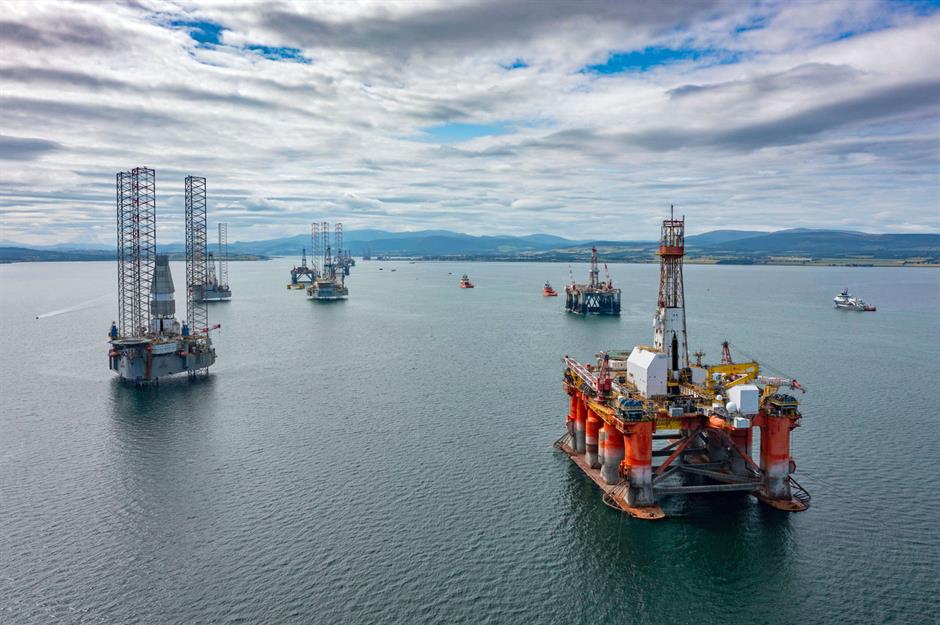
Yet in the wake of Russia's invasion of Ukraine, the UK government has re-embraced oil and natural gas production as it scrambles to beef up its energy security.
The government has been busily handing out licences for North Sea oil and natural gas exploration while lavishing fossil fuel companies with tax breaks to cover the cost of decommissioning offshore infrastructure.
For these and other reasons, the report gloomily concludes there's no evidence the UK government is actively winding down oil and gas production, which goes some way to explaining the country's “Insufficient” Climate Action Tracker rating.
Kazakhstan
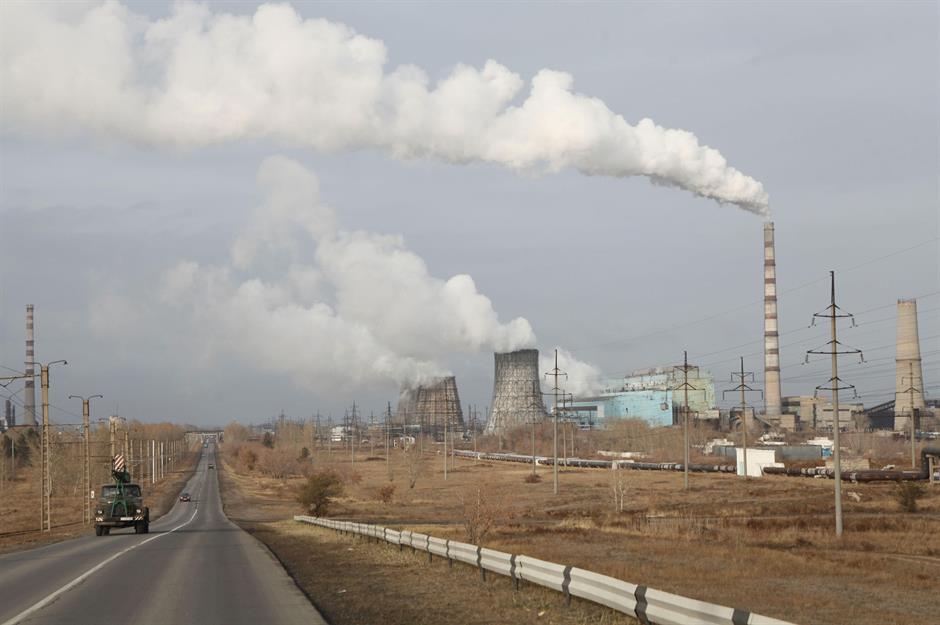
The government of Kazakhstan has set a goal of reaching carbon neutrality by 2060. The deadline isn't legally binding, but a strategy document has been approved that details the actions needed to achieve the target.
Kazakhstan is the world's ninth-biggest coal producer, ranking 13th for oil and 24th for natural gas.
Kazakhstan
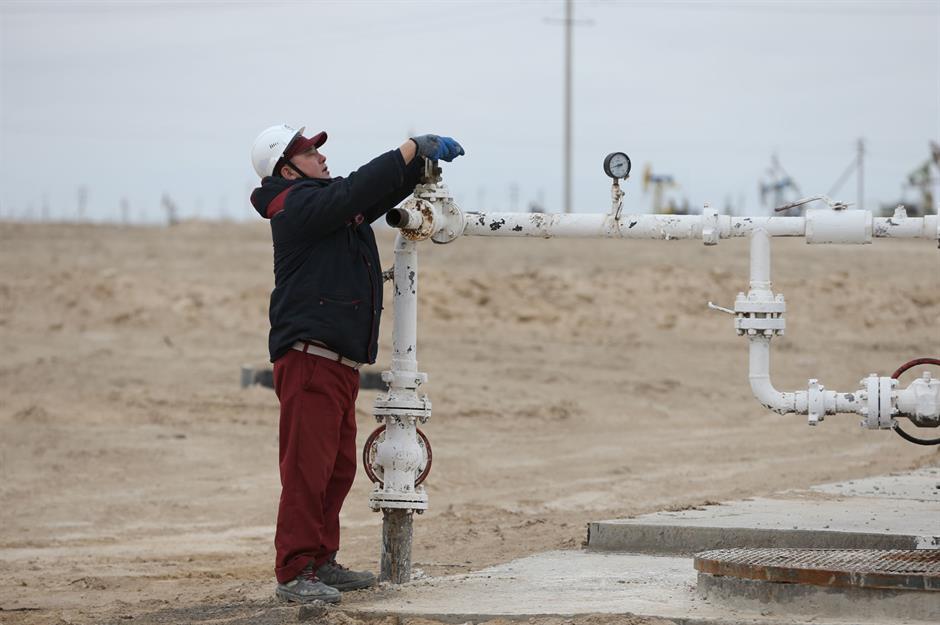
The country is slowly shifting away from coal, with production expected to fall modestly by 2030, although oil and natural gas extraction is set to increase.
Natural gas production won't be wound down for decades as it's intended to serve as an intermediate fuel during the country's green transition. The state offers generous subsidies and tax breaks to players in the industry and, with gas still fully in favour, these will likely continue.
The Climate Action Tracker rates its efforts to keep the global temperatures down as "Insufficient".
Sponsored Content
Australia
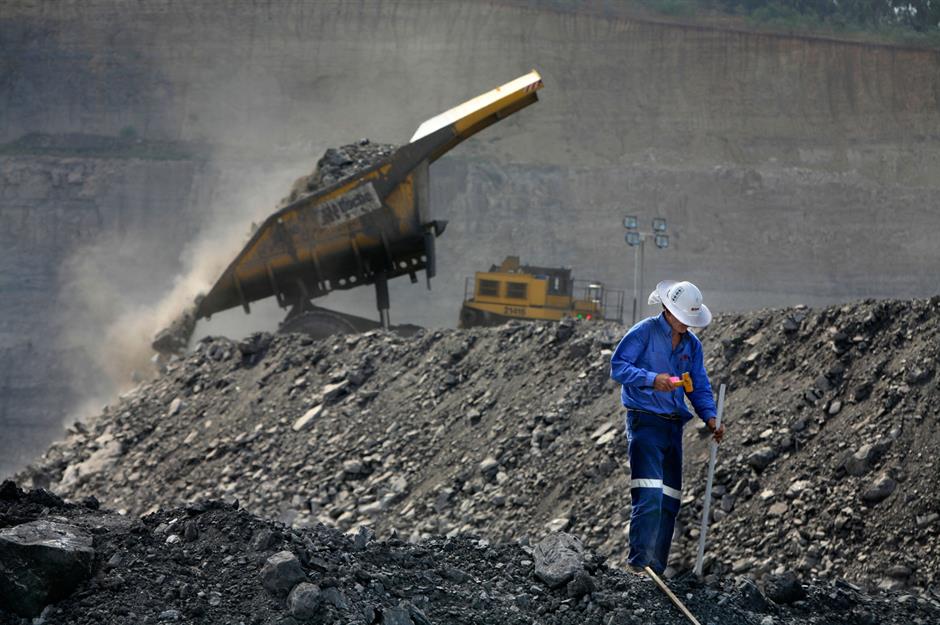
In 2022, Anthony Albanese's government passed the Climate Change Bill, enshrining into law a target to reduce GHG emissions to zero by 2050.
Australia is one of the world's top coal exporters and is ranked second globally for liquefied natural gas (LNG). Scores of new fossil fuel projects are taking shape in the Land Down Under, with subsidies and tax breaks, though not quite as open-handed as before, still generous.
Australia
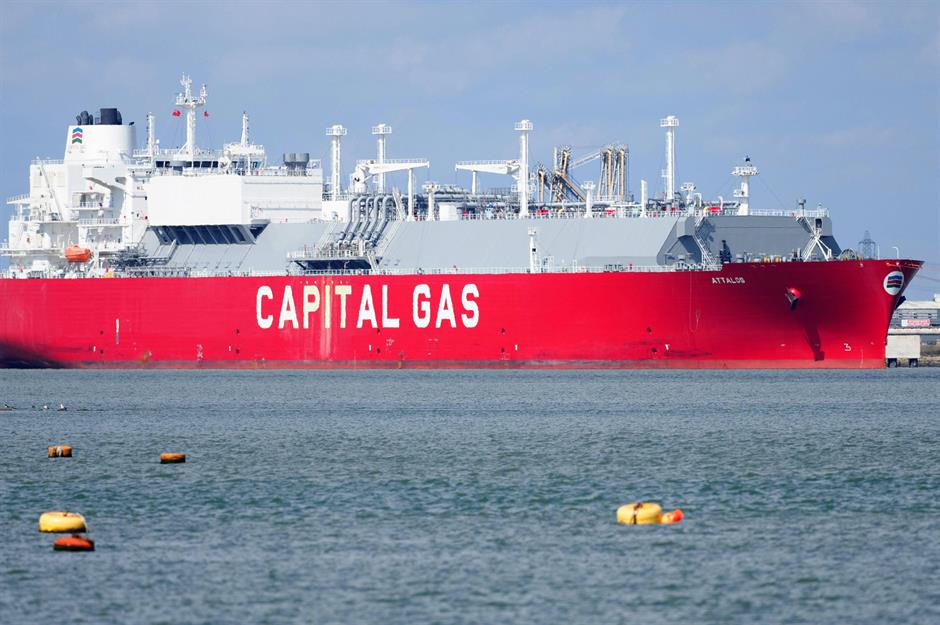
According to the Production Gap report, there's no overall government plan to restrict fossil fuel exploration and extraction.
The mining of coal is projected to increase moderately through 2030 and drop only modestly over the following decade. Natural gas production will rise more dramatically and level out in the 2030s amid strong demand for Australia's LNG exports.
Hooked on fossil fuels, Australia may have a more challenging time than many countries when it comes to sticking to its climate change commitments. No wonder its efforts have been deemed "Insufficient" by the Climate Action Tracker...
Colombia
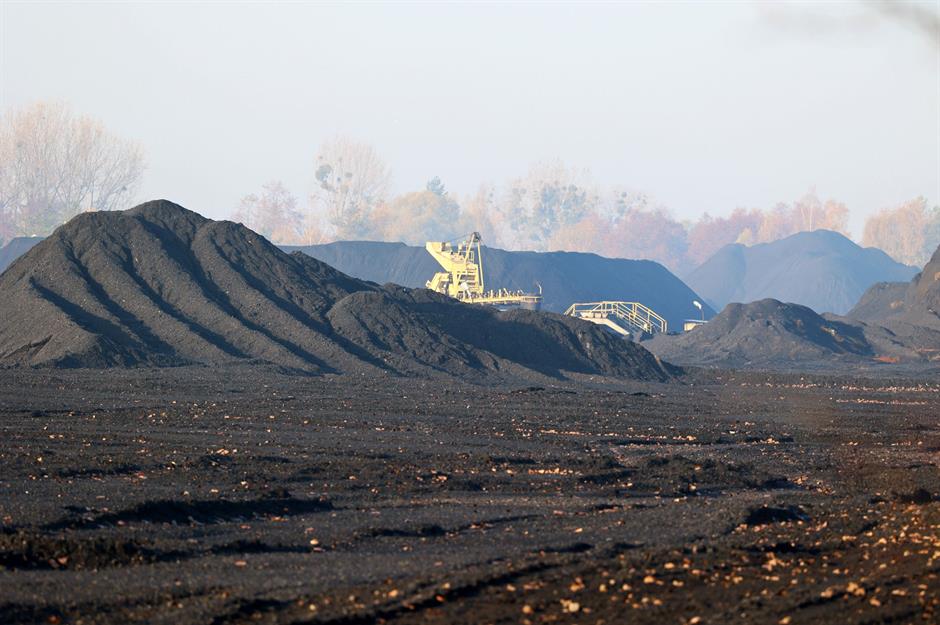
Colombia is on the growing list of countries with a 2050 net zero target signed into law.
The Latin American nation is the world's 10th biggest coal producer and generally exports more than 90% of its total production. Colombia is ranked 21st globally for oil extraction, making it a notable producer, but just 40th for natural gas, which isn't produced in vast quantities.
Sponsored Content
Colombia

The Colombian government has reportedly sent mixed messages about its plans to ban fossil fuel exploration. Coal production is forecast to surge, with figures indicating a doubling in output between 2021 and 2035.
Still, coal extraction is projected to plummet by around 70% between 2035 and 2050, with oil production falling by almost the same percentage and natural gas by 45%. Whether these figures align with Colombia's net zero target remains to be seen, which is reflected in the country's "Insufficient" Climate Action Tracker rating.
South Africa
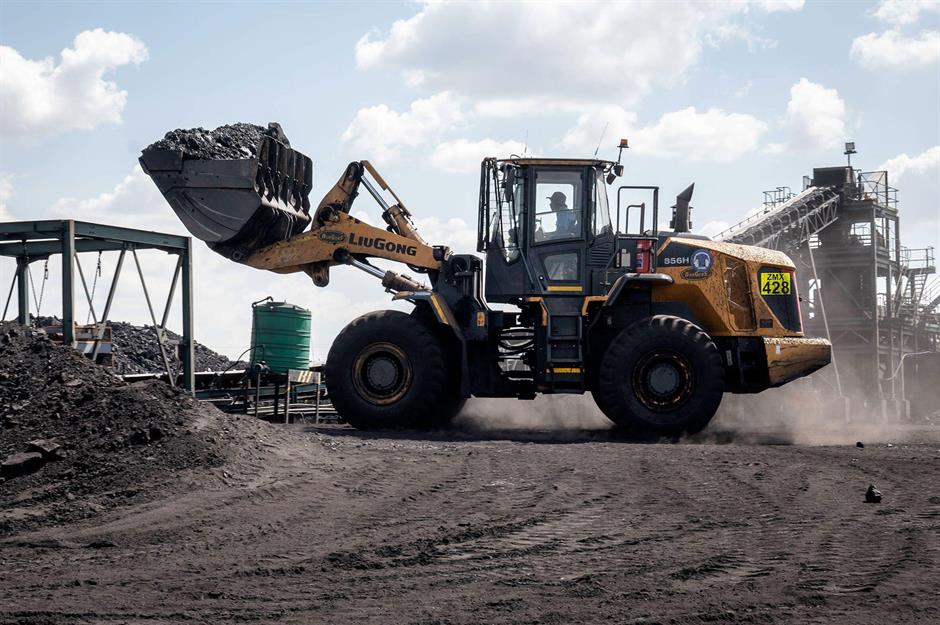
The South African government has stopped short of enshrining a net zero target in law, but a cut-off point of 2050 appears in several official documents.
South Africa is the world's seventh-biggest coal producer and one of the leading exporters of the dirty fuel. Coal provides thousands of jobs for residents, as well as a jaw-dropping 85% of the nation's electricity.
South Africa
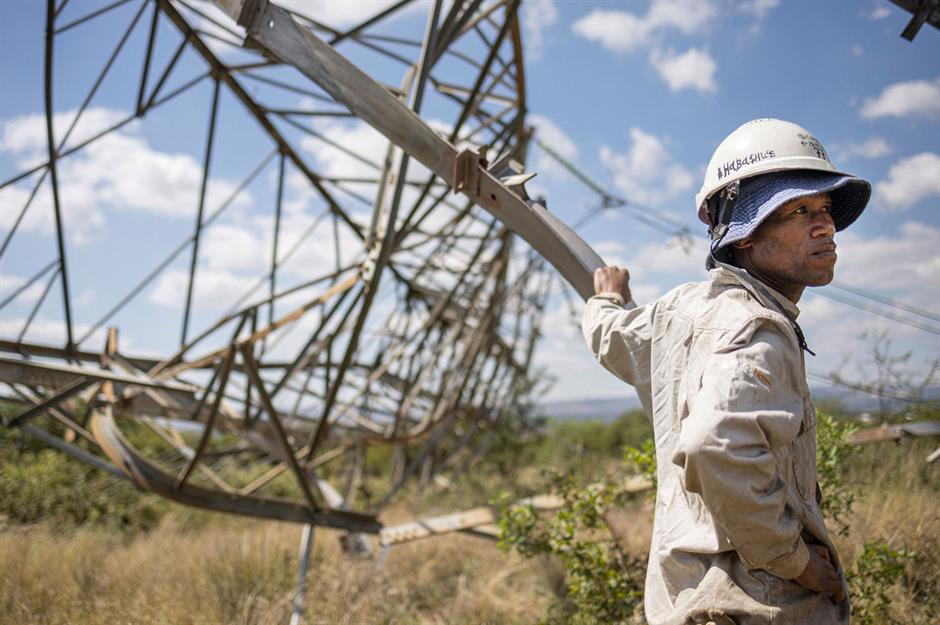
In 2022, the country's energy minister declared that "coal will remain the mainstay of South Africa's energy basket for the next 10 to 20 years" and there are no concrete plans to phase it out.
The current energy crisis plaguing the country is slowing the green transition and, to make matters worse, almost half the projects awarded under the government's relaunched renewable power purchase programme have failed.
The Climate Action Tracker deems South Africa's efforts "Insufficient", with the prospect of achieving net zero by 2050 looking ever more remote.
Sponsored Content
Brazil
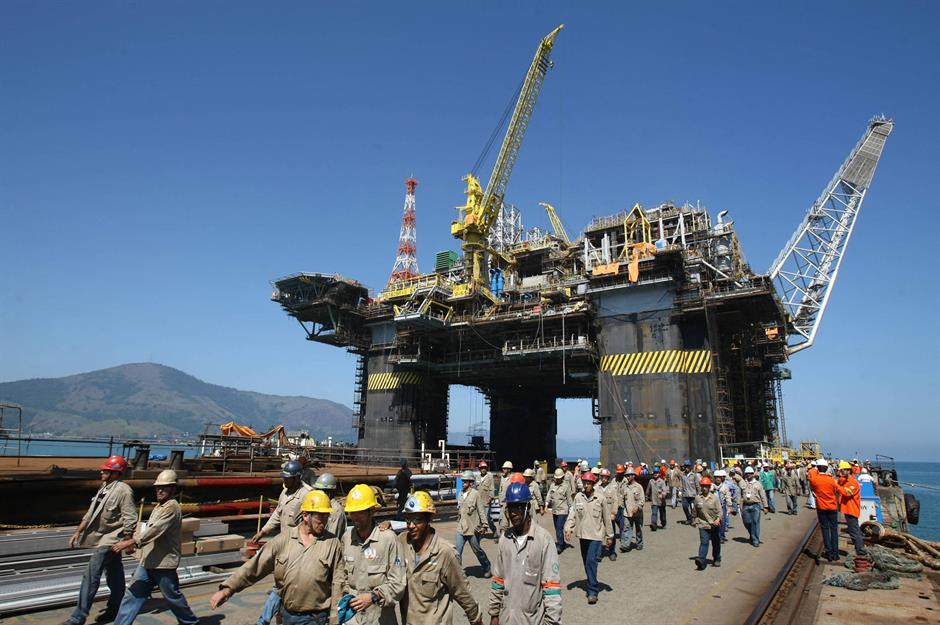
The Brazilian government is committed to reaching net zero GHG emissions in 2050, although this goal isn't enshrined in law.
The South American nation may have a hard time making good on its promise, with oil and natural gas production projected to surge in the coming decades.
Brazil is currently the world's eighth-biggest oil producer and the government wants to ramp up production until the nation is the fourth-biggest, having recently announced a major scheme to guarantee investments in exploration projects.
Brazil
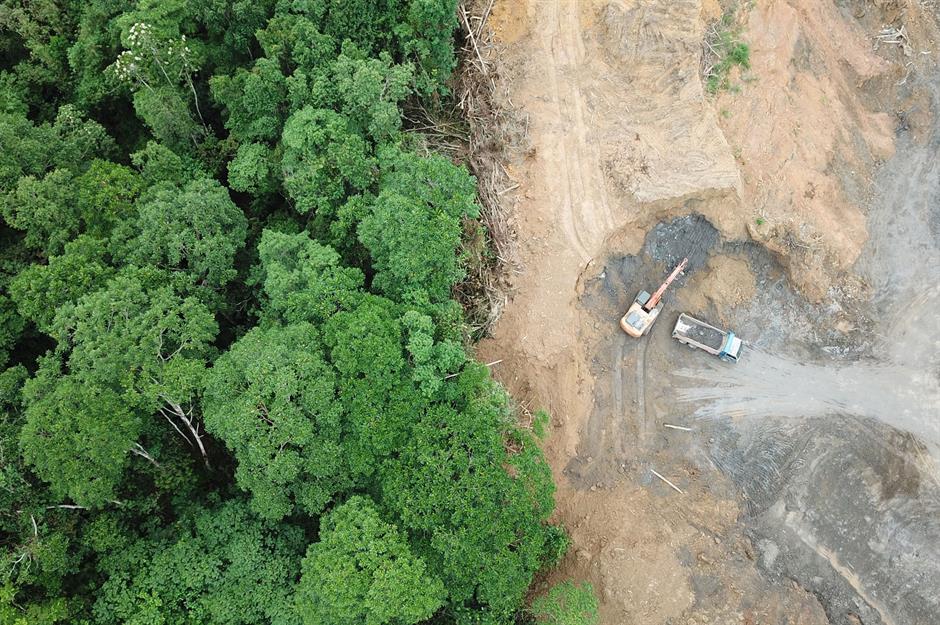
The winding down of fossil fuels will likely not happen by 2050, and the goal could be scuppered entirely if Brazil fails to halt deforestation and promote rewilding in the Amazon Rainforest.
However, Brazil already gets 85% of its electricity from renewable sources. State-owned oil firm Petrobras recently launched a new energy transition division and Reuters reported in January 2024 that the corporation had plans to start buying stakes in domestic onshore wind and solar projects.
While Brazil is leading the way in decarbonising the coal industry, its overall efforts have still been classed as "Insufficient" by the Climate Action Tracker.
USA
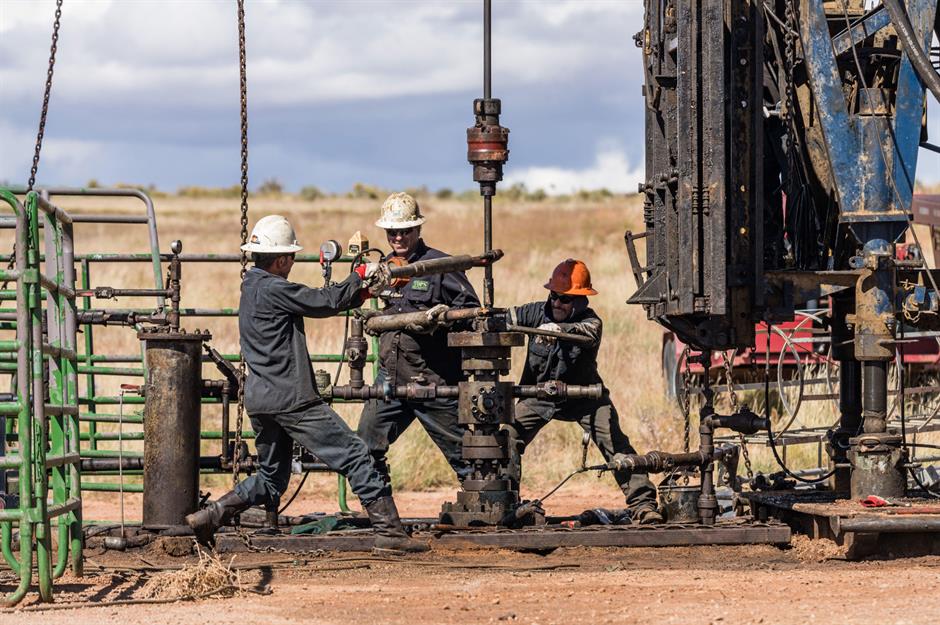
The US is another country that hasn't passed legislation setting a date for reaching carbon neutrality. Instead, a target of 2050 is included in its Paris Agreement NDC.
The US is the world's number one oil and natural gas producer, ranking fourth for coal extraction. The Inflation Reduction Act of 2022 has paved the way for the transition to renewables, but fossil fuels won't be ditched anytime soon.
Sponsored Content
USA
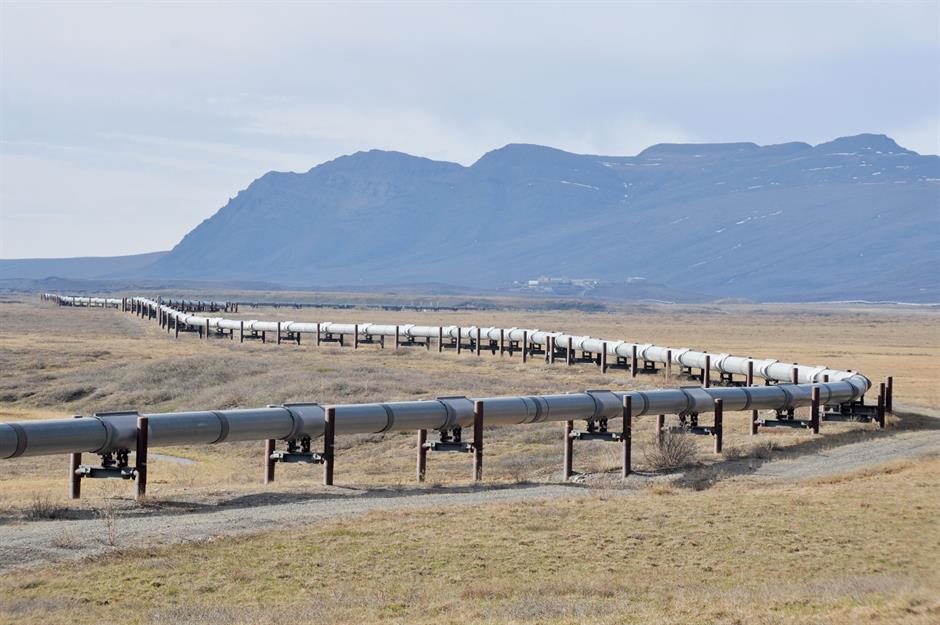
In fact, oil production is expected to accelerate this decade, along with natural gas; LNG has been identified as a key growth area. Exploration licences, leases, subsidies, and tax breaks all remain forthcoming.
The coal industry is winding down, with output poised to start falling drastically this decade. But America's action on climate change is still "Insufficient", according to the Climate Action Tracker. The nation is planning to go big on carbon management technologies instead of eliminating fossil fuels altogether, a move that's loaded with risk and uncertainty according to the Production Gap report.
Canada
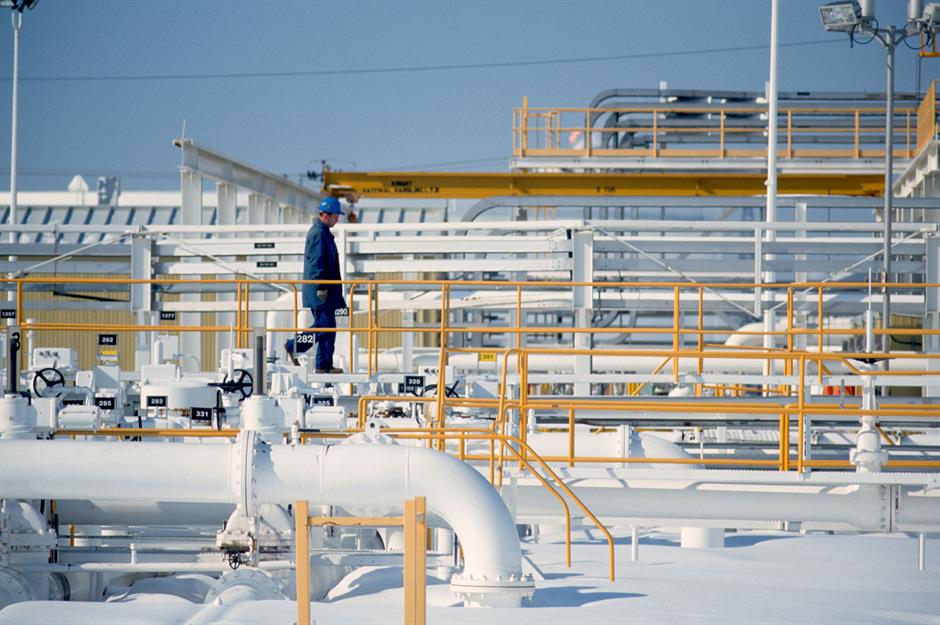
Canada, on the other hand, passed a law in 2021 that commits the country to net zero by 2050.
Canada is the world's fourth-biggest oil producer and ranks fifth for natural gas. It's also an important coal producer, ranking 13th globally.
Unsurprisingly, this means fossil fuels are crucial to Canada's economy – and while the country's environment minister called for their phaseout at COP28, any such action will likely be slow. In the business-as-usual scenario, oil and natural gas production is projected to jump this decade. (Figures for coal are unavailable).
Canada
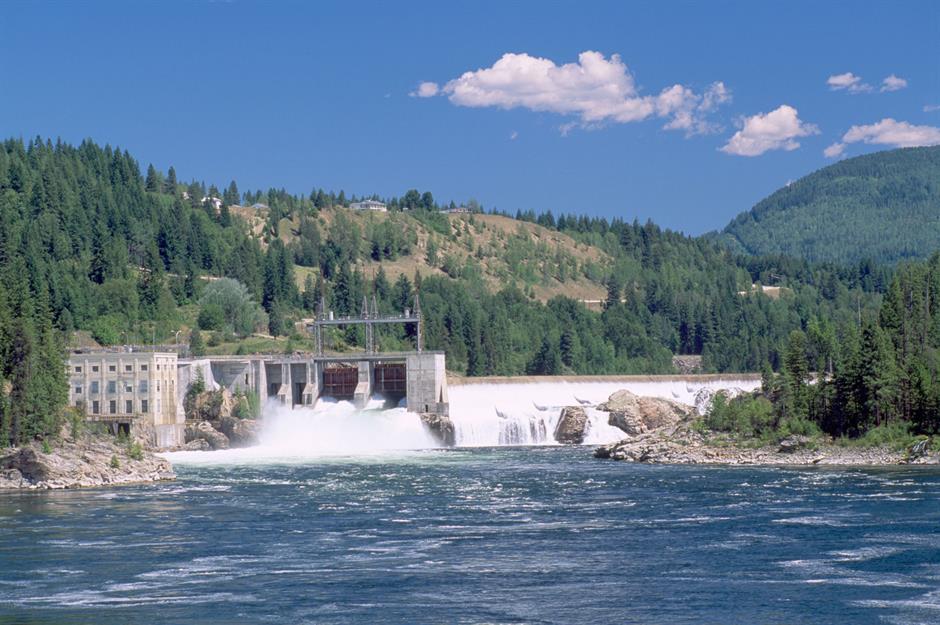
On the upside, the renewables sector is growing fast and more than two-thirds of Canada's electricity is generated from renewable sources, mainly hydro. According to KPMG's Net Zero Readiness Report, state support of the renewables sector is strong and measures such as a carbon tax are being considered.
But much more still needs to be done, and the Climate Action Tracker considers the government's efforts "Highly Insufficient" – one rung lower than America's.
Sponsored Content
India
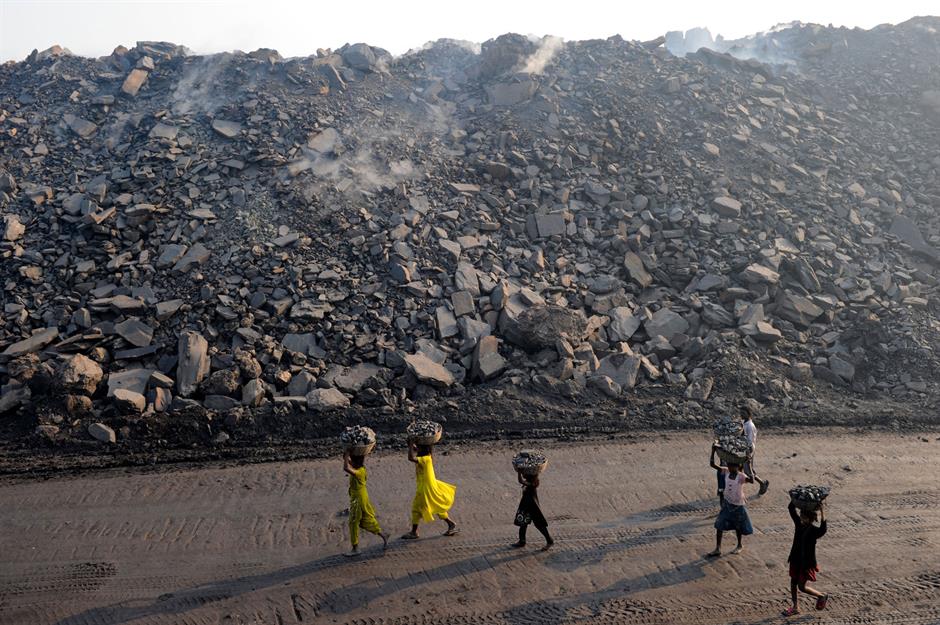
India has set a later deadline than many countries to achieve carbon neutrality, with a goal of 2070 outlined in its NDC.
The south Asian nation is the world's second-biggest producer of coal, and the dirty fuel accounts for 55% of the country's energy consumption.
India
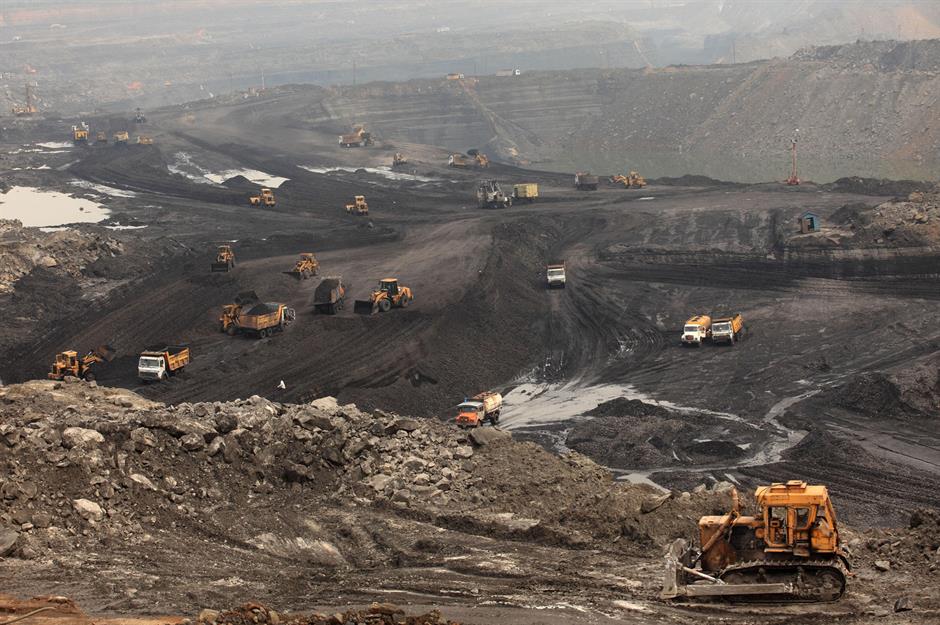
Coal production in India isn't just increasing; it's absolutely skyrocketing, with no tangible plans to rein it in.
The Production Gap report does applaud the country's investments and targets for renewables, as does KPMG's Net Zero Readiness Report. But there's still no escaping the fact that coal will continue to be the country's go-to fuel for a long time to come. Accordingly, India's Climate Action Tracker rating is "Highly Insufficient".
Kuwait
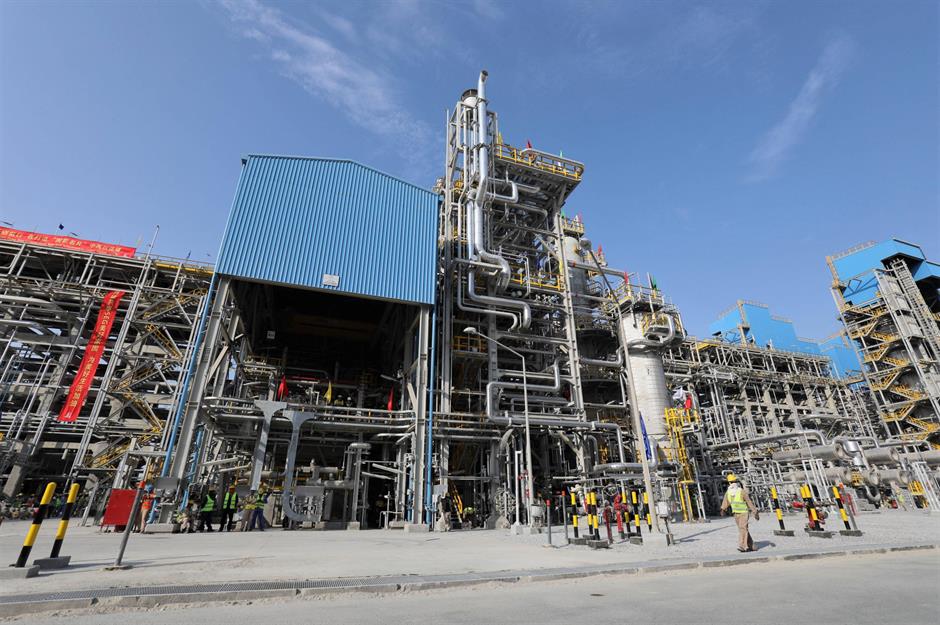
The Kuwaiti government has pledged to reach net zero GHG emissions in the oil and gas sector by 2050, and in other sectors by 2060.
That said, the government was among those at COP28 rejecting calls for a phaseout of fossil fuels. Kuwait's economy is dominated by oil, which provides 90% of government income. The country is the world's 10th biggest exporter of the fuel, while its natural gas production is ranked 30th globally. Coal mining is so minimal in the nation that the Production Gap report doesn't track it.
Sponsored Content
Kuwait
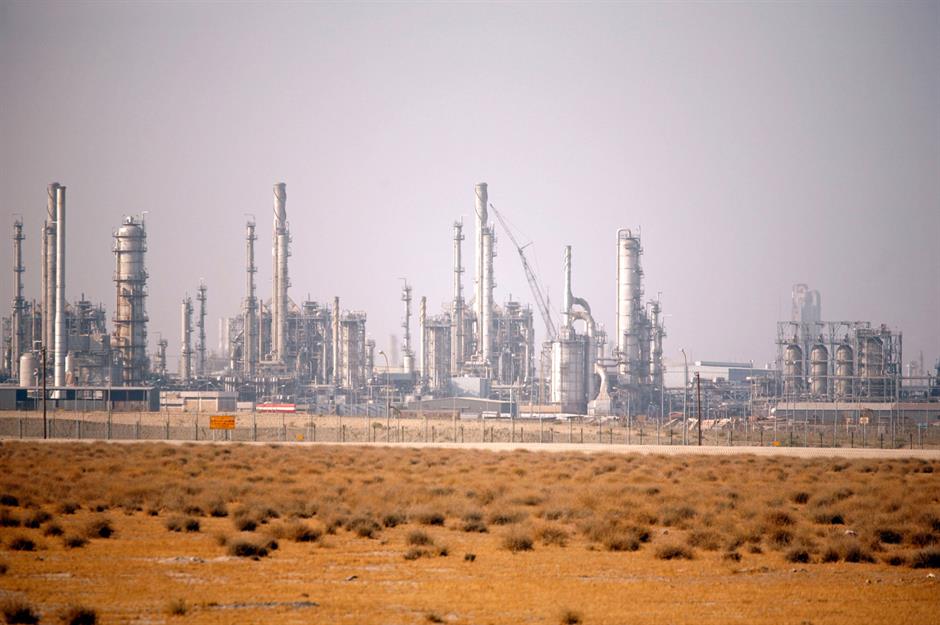
Oil production is forecast to mushroom before plateauing in the mid-2030s, while natural gas extraction is expected to increase slowly but surely.
The Production Gap report hasn't identified any government policies that outline a winding down of fossil fuels, which puts a huge question over whether Kuwait can keep its promise to go carbon neutral by 2060.
China
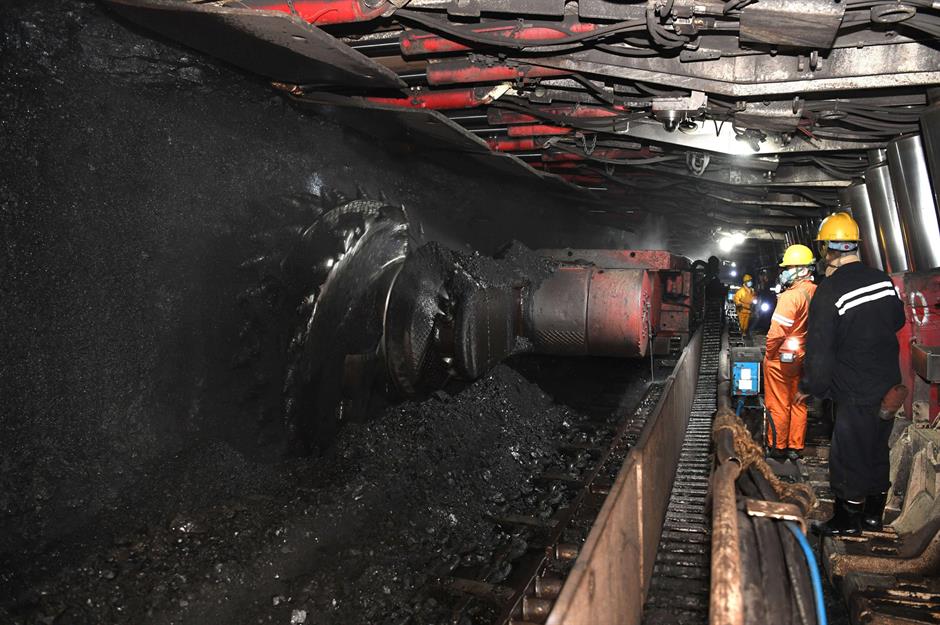
China has also opted for 2060 as the date it plans to achieve net zero throughout its economy. The pledge is contained within the nation's NDC.
The biggest GHG emitter on the planet, China mines breathtaking quantities of coal, markedly more than any other country. A staggering study by Global Energy Monitor and the Centre for Research on Energy and Clean Air found the People's Republic is building six times more coal power plants than the rest of the world combined.
The country is also a leading oil and natural gas producer, for which it ranks sixth and fourth in the world respectively.
China
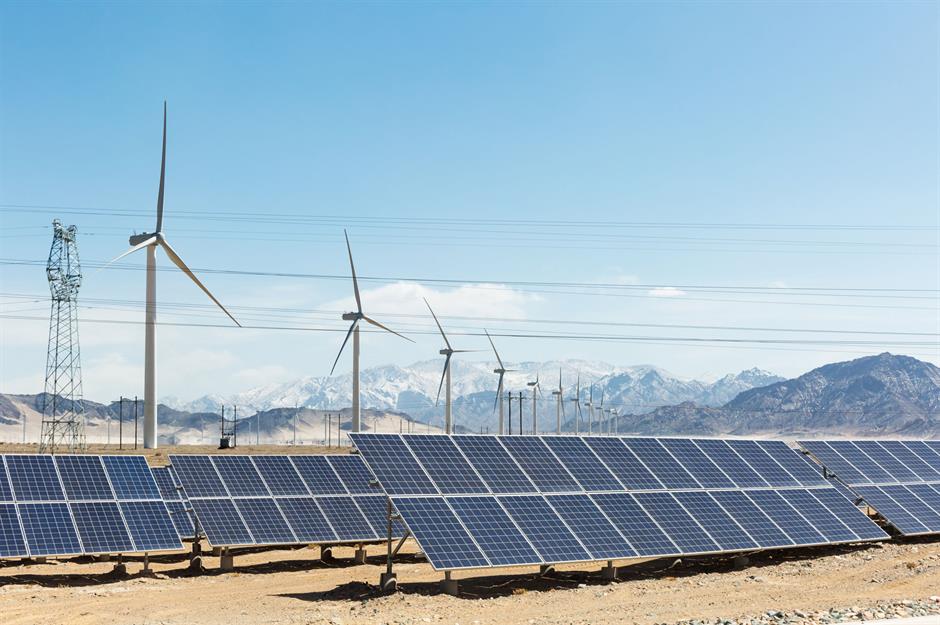
China is gradually moving away from coal and has claimed it wants to use the fuel more efficiently. Production looks to be on a downward trajectory this decade and is projected to fall even more sharply in the 2030s, yet will still remain huge by comparison. Oil extraction is expected to plateau, while gas production is set to rise.
On the flip side, China is the global leader in renewable energy, from solar and wind power to hydroelectricity, with the KPMG report emphasising the high level of support these projects receive. Regardless, the Climate Action Tracker still deems the country's climate change mitigation efforts to be "Highly Insufficient".
Sponsored Content
Indonesia
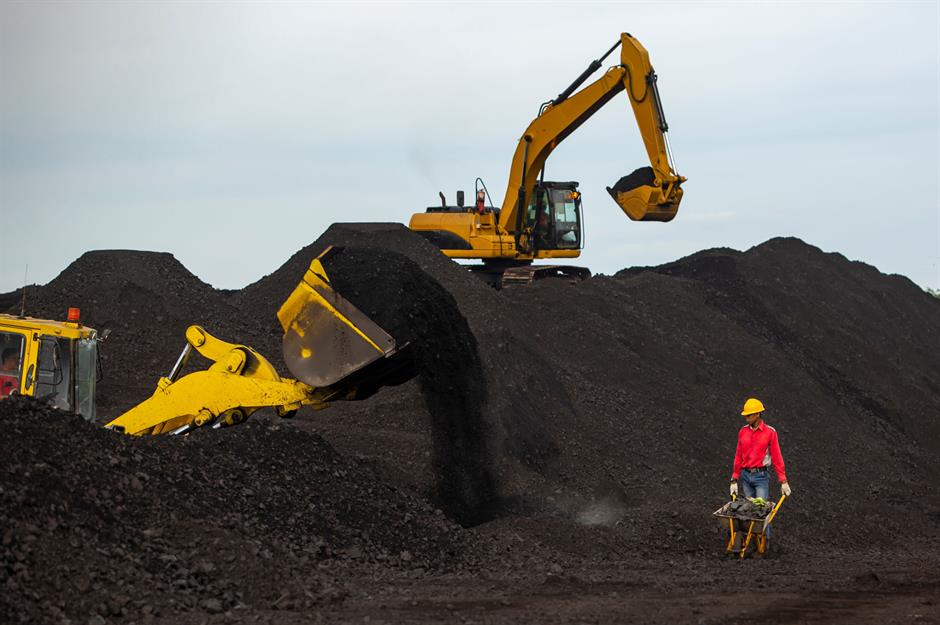
Indonesia intends to achieve "the peaking of national GHG emissions in 2030" and "rapidly progress towards net zero emissions in 2060 or sooner" according to its long-term strategy document. The country's government hasn't enshrined this in law.
Oil and natural gas are produced in substantial quantities, but coal is the undeniable king in Indonesia, with the country the world's third-biggest producer and second-biggest exporter of the fuel.
Indonesia
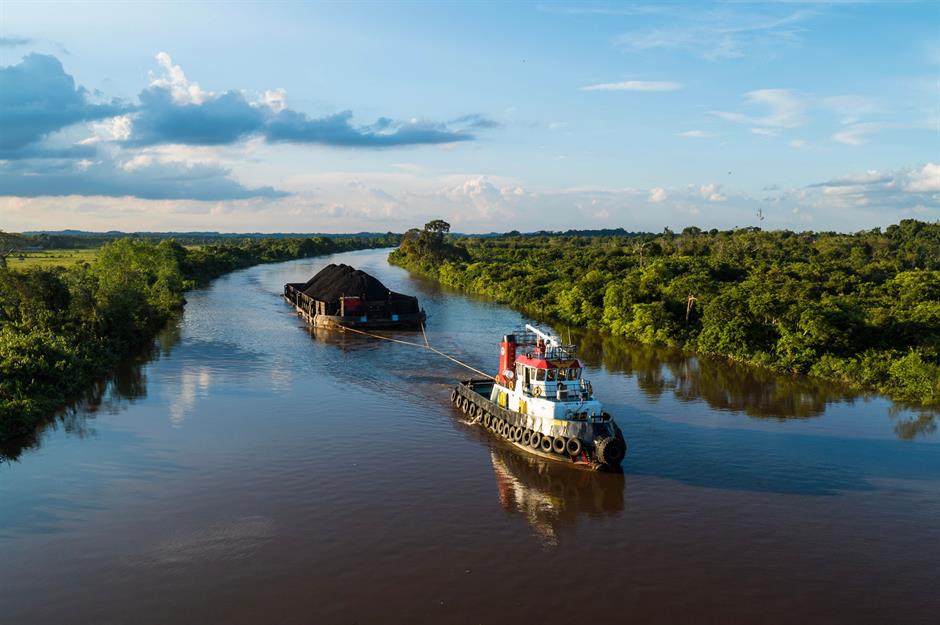
The government is hoping to phase out coal plants by 2050, though coal production overall is increasing as oil extraction decreases. Natural gas production is expected to rise this decade before declining in the 2030s.
The Indonesian government hopes to pivot the coal industry towards producing the commodity for non-energy uses and plans to deploy carbon capture technologies to reduce emissions. However, the Climate Action Tracker has given Indonesia a "Critically Insufficient" rating, the lowest rank possible.
Mexico
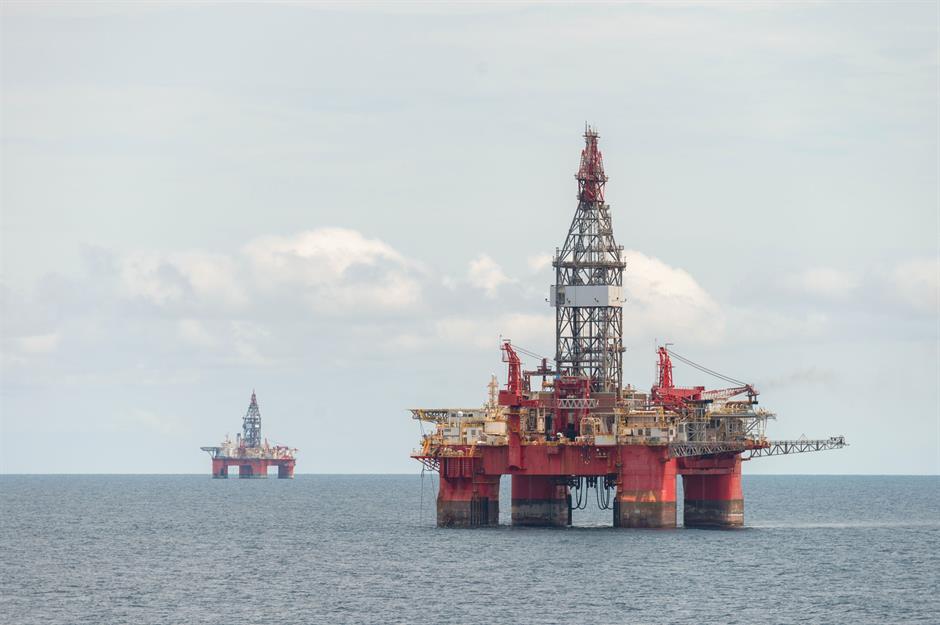
Mexico hasn't set a date for when it plans to reach carbon neutrality. That could have a lot to do with plans to expand oil and natural gas production in the country, with the government going all out to shore up energy security.
While coal production is modest in Mexico, oil and natural gas are both big business for the nation.
Sponsored Content
Mexico
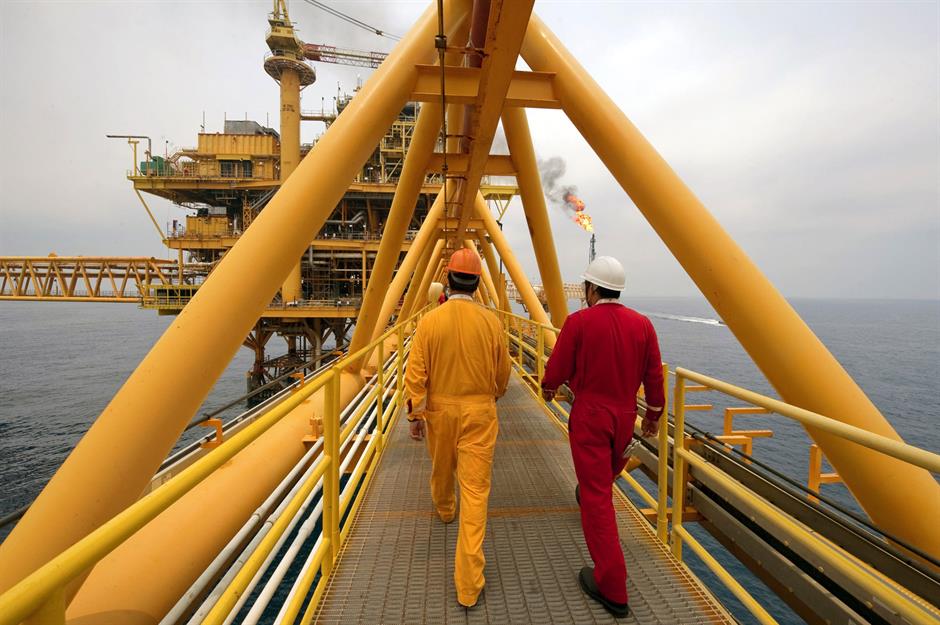
State-owned oil company Pemex enjoys bountiful funding and tax breaks. Though the Mexican government is increasingly turning to renewables such as hydroelectricity, it has no plans to phase out fossil fuels this century according to KPMG.
Mexico is rated a dismal "Critically Insufficient" by the Climate Action Tracker.
Qatar
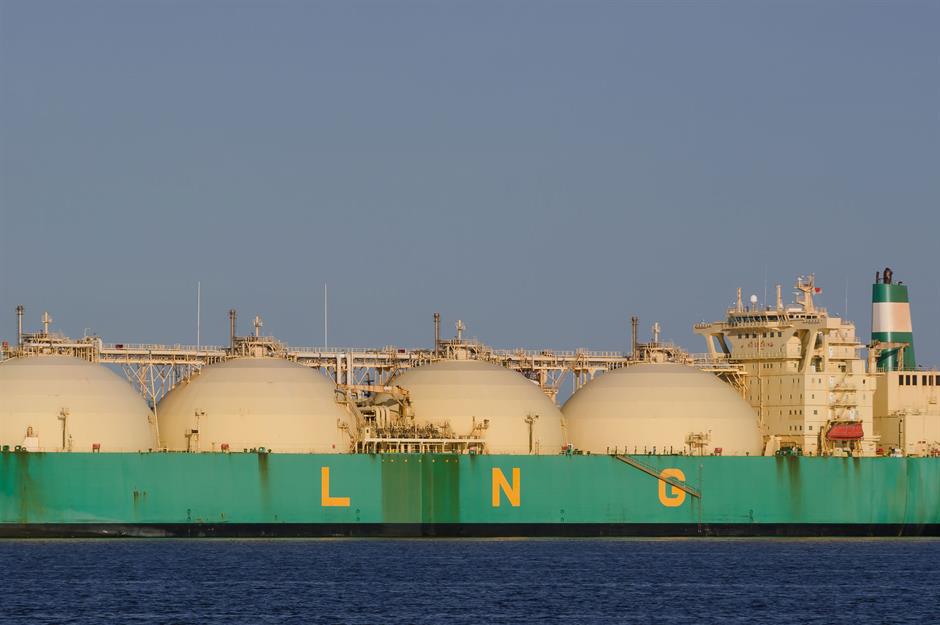
Qatar has yet to announce a net zero target. Its oil production, while large, has been declining over the past decade, although its natural gas extraction has followed the opposite trajectory and is forecast to shoot up over the coming years.
LNG exports underpin the country's economy and demand is set to be buoyant, with many countries opting for natural gas as a transition fuel.
Qatar
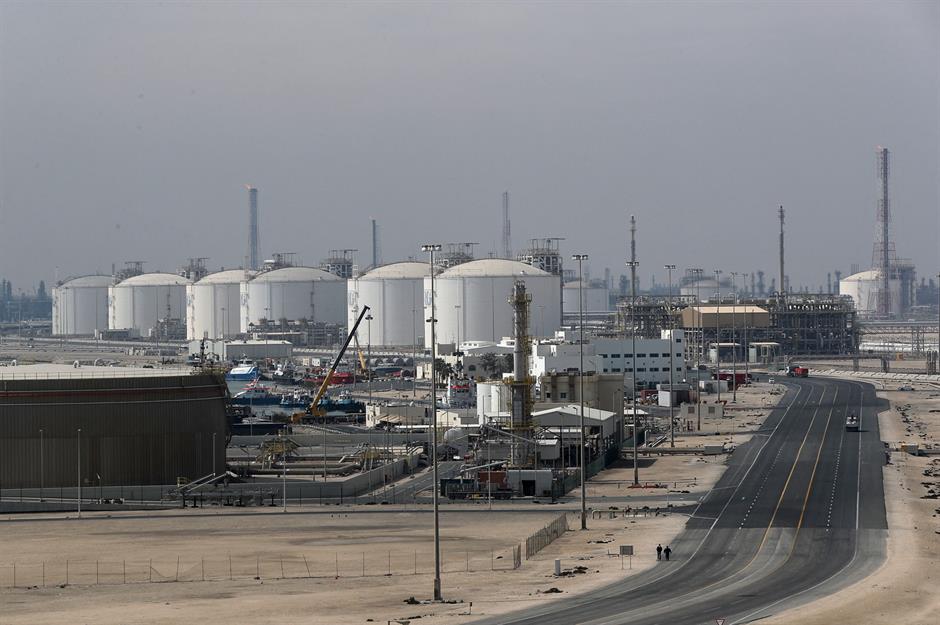
Qatar has won lots of new gas customers as a result of the war in Ukraine.
Since Qatar hasn't set a date for when it plans to reach net zero, it's hardly surprising the country's government hasn't formulated plans to start a phaseout of fossil fuels. This is likely to be a long way off, if it happens at all...
Sponsored Content
UAE
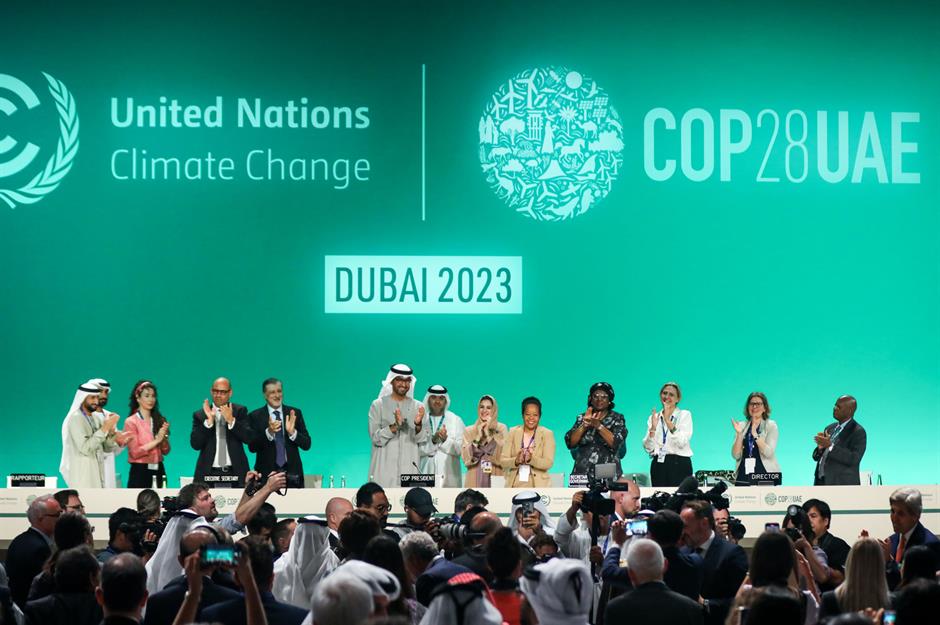
The controversial host of COP28, the United Arab Emirates has opted for a deadline of 2050 to complete its net zero transition, with the goal outlined in its NDC.
The country's government announced a slew of enhanced decarbonisation targets before 2023's climate conference, including plans to triple its renewable energy capacity by 2030, with green hydrogen playing a significant role.
Despite this and the government's ongoing efforts to diversify, oil and natural gas will still be crucial to the UAE's economy for decades to come.
UAE
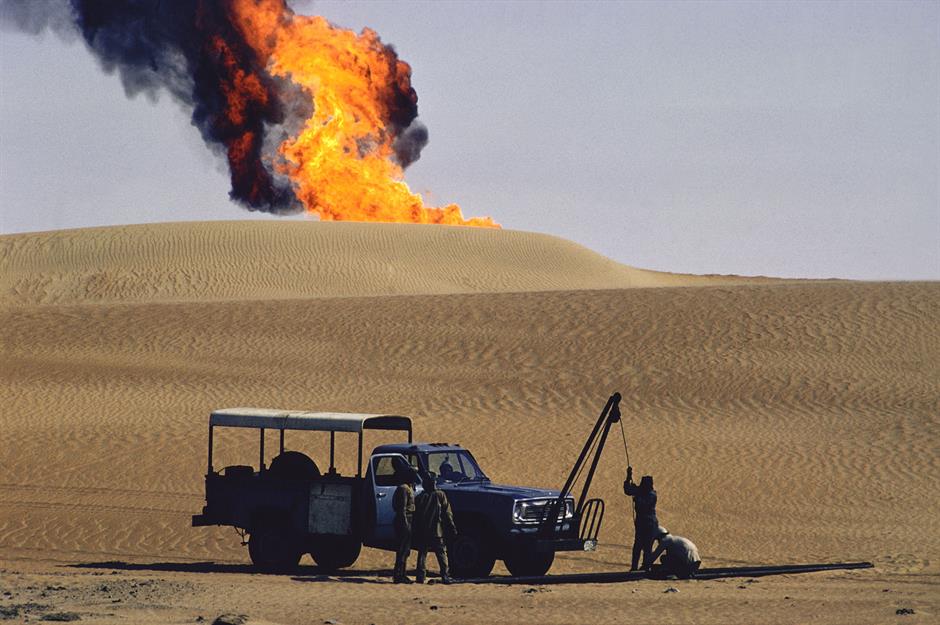
Production of oil and natural gas is actually on the increase, though that could change in the next decade, as official projections beyond 2028 are unavailable.
Doubts remain over whether the UAE can keep its net zero promises and these are reflected by the Climate Action Tracker, which rates the UAE's climate change mitigation efforts as "Critically Insufficient".
Saudi Arabia
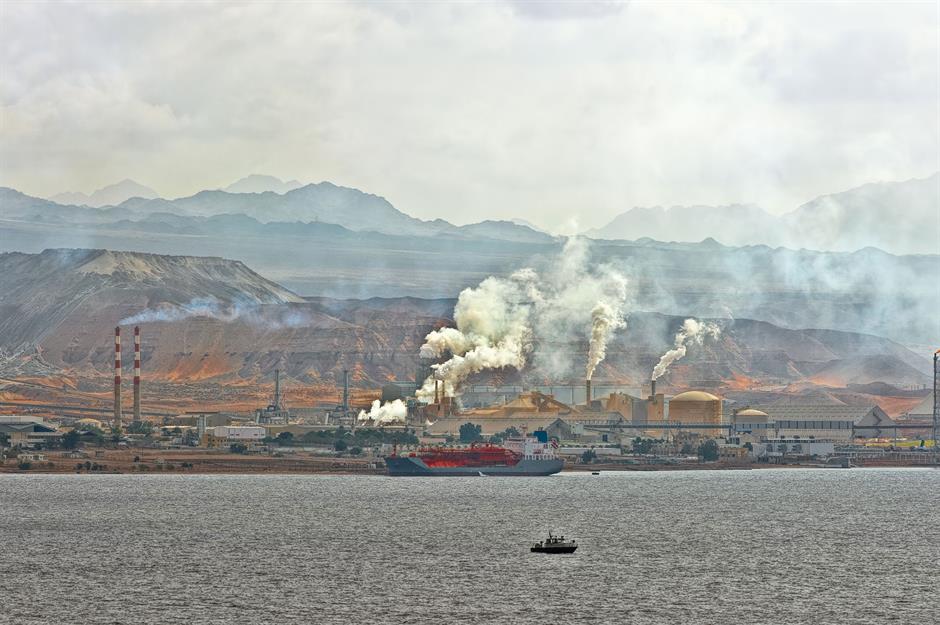
Saudi Arabia has pledged to achieve carbon neutrality by 2060, but hasn't signed the target into law.
Renowned for its oil reserves, the country is the world's third largest producer of the fossil fuel and ranks 10th globally for natural gas extraction. As is the case in other Gulf countries, coal isn't mined in Saudi Arabia.
Sponsored Content
Saudi Arabia

State-owned oil giant Aramco holds 17% of the world's known oil reserves and isn't planning on walking away from them. Oil and natural gas production is projected to shoot up this decade and beyond.
The Saudi government has no clear plan to phase out fossil fuels. Instead, it's focusing much of its efforts on adopting cleaner and more efficient production processes while developing carbon capture technologies. This approach has been widely questioned, with Saudi Arabia's efforts judged "Critically Insufficient" by the Climate Action Tracker.
Russia
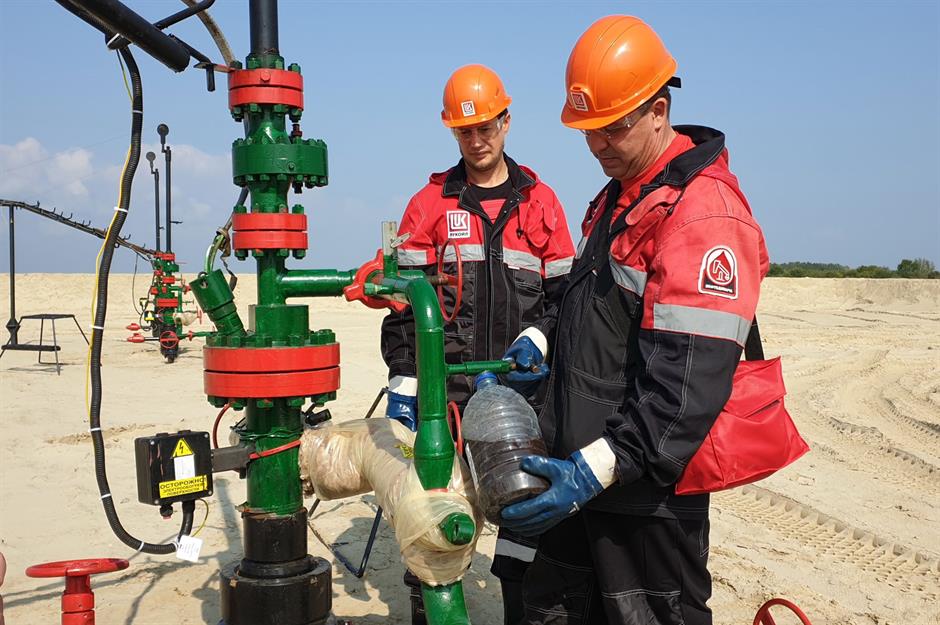
The Russian government has pledged to reach net zero by 2060, with the goal outlined in an official strategy document.
As a leading producer of all three major fossil fuels, Russia is unique. The country is the world's second-biggest producer of both oil and natural gas, and ranks sixth for coal extraction.
Russia
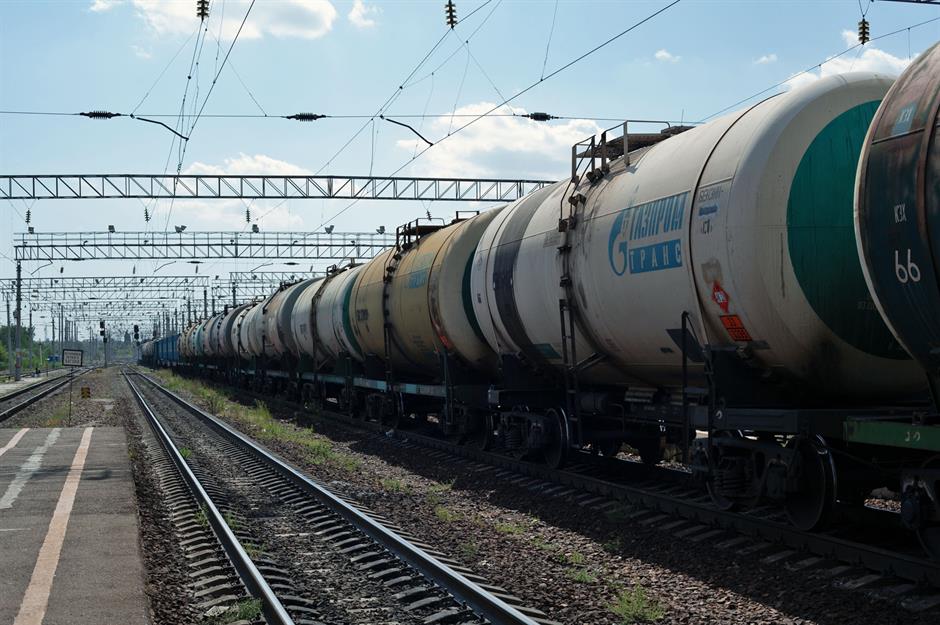
Production of the three GHG-emitting fuels is anticipated to increase for the rest of the decade, despite Russia's invasion of Ukraine: its Western export markets have simply moved to the Asia-Pacific region and elsewhere.
Industry subsidies and tax breaks remain attractive, and there are no plans to wind down fossil fuels. In fact, President Putin even claimed back in 2021 that Russia's forests "absorb several billion tons of CO2 equivalent on an annual basis".
As might be expected, expectations that Russia can meet its net zero target are low, with its endeavours receiving a “Critically Insufficient” rating by the Climate Action Tracker.
Now discover which countries are using the most renewable energy in 2024
Sponsored Content
Comments
Be the first to comment
Do you want to comment on this article? You need to be signed in for this feature